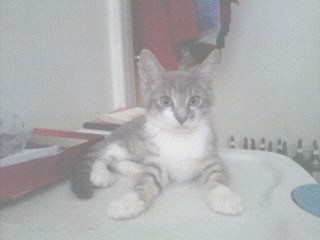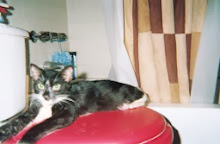Married Love and other Stories by Tessa Hadley
Publisher: Harper Perennial
Date: November 20, 2012
ISBN: 978-0-06-213564-3
Pages: 240
Rating: 5 out of 5
Summary: Married
Love is a masterful collection of short fiction from one of today’s most
accomplished storytellers. These tales showcase the qualities for which Tessa
Hadley has long been praised: her humor, warmth, and psychological acuity; her
powerful, precise, and emotionally dense prose; her unflinching examinations of
family relationships. Here are stories that range widely across generations and
classes, exploring the private and public lives of unforgettable characters: a
young girl who haunts the edges of her parents’ party; a wife released by the
sudden death of her film-director husband; an eighteen-year-old who insists on
marrying her music professor, only to find herself shut out from his secrets.
In this stunning collection, Hadley evokes worlds that expand in the
imagination far beyond the pages, capturing domestic dramas, generational
sagas, wrenching love affairs and epiphanies, and distilling them to remarkable
effect.
My thoughts: I’ve always enjoyed short story collections
but don’t read them as often as I’d like.
When I saw Tessa Hadley’s new book on TLC Book Tours review list, I was
excited to read and review it. I read
Hadley’s last novel The London Train. I
thought her writing was sharp and clever and her characters fascinating. So I was interested to experience her short
stories and am very happy I did.
Married Love may be the title
but Hadley explores different kinds of love and relationships: love in family and friendships, burgeoning
love, passionate love, old and settled love, tentative love and more. Her explorations show an acute understanding
of human nature and interaction.
In the riveting title story, Married
Love, Lottie, a young and single 18-year old, tells her family she’s going
to be married. Their confusion and concern is heightened when Lottie announces,
triumphantly that the groom is her music professor, Edgar. Lottie’s oblivious to the fact that he’s three
times her age and married with grown children.
She’s been flattered by Edgar and made to feel special. Lottie’s watched
her older siblings move out and build exciting, interesting lives while she’s
still at home. Hadley shows us how anger
and resentment can cause impetuous choices, especially in someone young and
immature like Lottie. This is, at its core,
a story of rebellion and irony. Lottie
relishes shocking her family. She
expects them to see her as all grown-up, as someone important and special. Lottie
doesn’t understand their dismay at her choice to marry an elderly man with a reputation
for seducing his young female students.
These are trite, unimportant details to Lottie who’s caught up in
visions of a fantasy life with Edgar. Hadley captures, in Lottie, so many young
women’s feelings of insecurity and their need for attention.
Lottie
gets what she wants but her fantasy life shatters quickly and the reality of
her behavior becomes clear. In not considering
the big picture, Lottie finds herself, if not physically, emotionally and
psychologically alone in the end, her days spent caring for their children with
no room or time for music. Edgar’s character is clearly delineated but Lottie,
the focus of this story, is more complex but certainly relatable to millions of
young women. Hadley conveys powerful messages through strong,
simple sentences packed with emotion that have an intense impact on the reader.
One of my favorite stories in this collection is She’s the One. Ally and
Hilda meet briefly at a writer’s center. Hilda’s very serious and stoic, not given to
talking about herself or making friends easily. Being 30 years Ally’s senior it’s not until
they run into each other at the market, away from the center that they talk. Both women have been marked by traumas, so they
sense a connection with each other.
Hadley uses these women to illustrate how pain and suffering can bring people
together who might otherwise have no connection at all. Hilda recognized Ally’s need for support,
understanding and companionship because of her ability to relate to her
suffering. These women form a bond and discover they can talk to each other
about things they can’t reveal to other people.
Hadley succeeds in telling, with insightful, beautiful prose, a
heartfelt and painful story that shows how people can find solace and
friendship in some very unlikely ways.
These two stories speak strongly
to women, as do most of the stories in Hadley’s collection, but Hadley’s
intuition and understanding of human interaction and relationships renders this
story collection one able to be appreciated by anybody interested in better understanding
fellow human beings. In other words, these stories are more along
the lines of literature in their complexity, acuity and style and should be
appreciated as such. In Married Love
Hadley has written a fascinating, powerful and insightful collection of stories
worthy of being read and savored by all. I highly recommend this collection.
Thank you to TLC Book Tours for the opportunity to read and review Married Love and to Harper Perennial for an ARC of the book.

































































